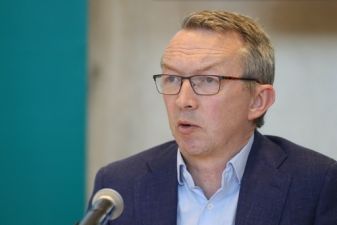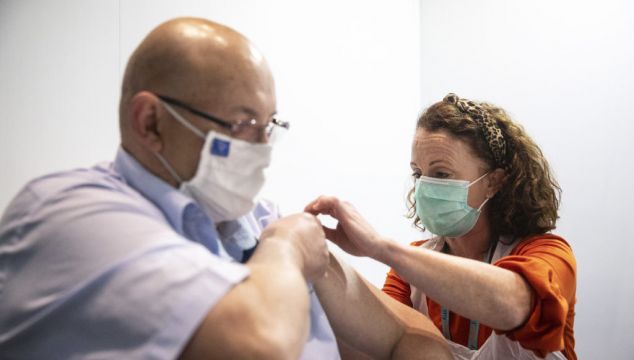The Covid vaccination campaign will move to a new phase next week as the health service begins to administer third doses of the jab to vulnerable groups, the chief executive of the HSE has confirmed.
Paul Reid said those eligible for a third vaccine dose can make appointments from Wednesday, with the first doses given next Friday.
The process of identifying those eligible for the third dose was complex, he said. There was not a “simple list to take off the shelf,” he told RTÉ’s Morning Ireland.
Mr Reid said that the campaign would take five to six weeks. The HSE will contact those they consider “high risk” to make appointments. Clinical teams will identify those in this category, he explained.
The vaccines will be administered through vaccination centres, hospitals, care settings and through GPs, he said.
From next week our COVID-19 vaccine programme will begin third doses for immunocompromised. College vaccination week also takes place with pop-ups in third-level college. Here's an update. #ForUsAll@roinnslainte @HSEImm @HSELive @merrionstreet pic.twitter.com/Jm2m4sCMP9
— Stephen Donnelly (@DonnellyStephen) September 24, 2021
Sláintecare
Speaking about the healthcare reform programme Sláintecare, Mr Reid said he is passionate about implementing the plan and committed to its recommendations including regional structures.
He said the HSE was “fully committed” to Sláintecare, but that implementing its recommendations was a matter of time. It would not have been appropriate to attempt to introduce some of its measures while “battling Covid.”

When he took up his role as chief executive two years ago, he did so with “a passion to implement Sláintecare.”
Sláintecare was always about reforming the system, he said. He recognised that reform measures were necessary and he was “fully up for that.” He was committed to that, he said.
There was no major disagreement from the HSE about the measures, there was an “absolute concession” that change was needed to “protect people’s lives.”
Mr Reid said the HSE acknowledged what needed to be done with regard to regional structures, but they would have to be integrated. “We will be happy to implement, we want more regional structures, equally we want to tackle the big issues like waiting lists and services.”







